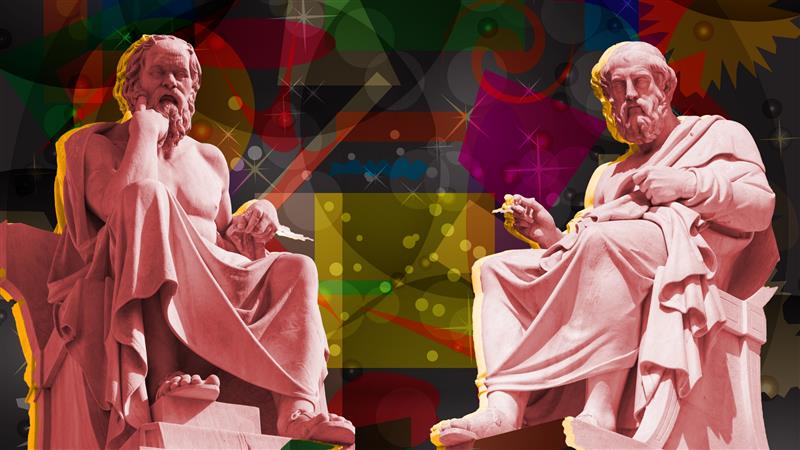
At the UN’s AI for Good Summit, in Geneva, Greek Prime Minister Papandreou invoked Plato’s cave allegory, alerting that AI and social media threaten trapping humanity in algorithmic illusions that distort democracy and truth, and technology in philosophy.
Juxtaposing AI-generated content to the “shadows on the cave wall,” Papandreou argued that unregulated algorithms polarize discourse and weaken critical thinking. The Greek Prime Minister appealed for the revival of Socratic dialogue to fight digital manipulation.
Papandreou conceptualization of this dark reality and relation with AI models aligns with philosophers, like Harry Frankfurt, who decry AI’s proliferation of “bullshit,” as Big Tech companies always prioritize high engagement over philosophical enlightenment.
“Plato is saying we can get very much stuck into these worlds and think it’s a reality, and [become] very, very reactive to any kind of change that may happen,” he told Euronews.
Worries come from a deeper concern that tools designed to help us understand the world might instead distort it. Papandreou’s thoughts echo growing public anxieties around Socratic AI, a concept rooted in dialogue, questioning, and thoughtful reflection, rather than blind trust.
Artificial Intelligence or Artificial Illusion?
Papandreou believes that rather than illuminating knowledge, AI actually presents a convincing, yet misleading, picture.
“AI is impacting our culture, It’s the way we think about the world, the way that we communicate, and our culture is also, I would add, our political culture in a democracy” he said.
Despite being put on the pedestal of truth and efficiency, AI systems lack the ability to distinguish between knowledge and plausible-sounding guesses.
Such systems present a more dangerous threat than lies. Against this backdrop, technology is not just confusing, but it could form a concept of AI threat to democracy. Papandreou echoes this warning. He asks whether social platforms today foster real debate or just expand division.
“Is it trying to dominate? Is it bullying? Is it polarising?,” Papandreou asked.
Algorithms are designed to stimulate reaction rather than understanding; therefore, the prime minister’s fear of technological philosophy is translating politics into terrifying forms.
Democracy in the Age of Algorithms
To Papandreou, the answer to this challenge is to turn back the clock. In borrowing from ancient philosophy on AI governance, he proposes a new Athenian-style public discourse – modernized for the digital age. He sees the civic spaces on the internet where individuals from all walks of life, not just the elite, and women, too, can participate in debates about policy.
“One of the ideas that democracy was invented [for] was to make sure that power is not concentrated,” the Greek PM highlighted.
This notion matches recent debates in readings in the philosophy of technology, where scholars debate how tools change not only behavior, but even thought. When AI tools are being used in everything in our world, Papandreou advocated for new models that serve democratic values, not private interests.
Even Socrate himself, who distrusted writing for being one-sided, might have been interested in the conversational, interactive nature of contemporary AI. Used wisely, some believe it might simulate a digital interaction, a back-and-forth conversation of thoughts.
For those worried that AI encourages passive watching, there’s another school of thought that might encourage more thinking.
“Rather than me being lazy and just have it “write” for me (one of the central criticisms of AI), I actually converse with it and find myself arriving at new ways of understanding, AI is not just for lazy writers, it’s for writers who want to refine their own ideas,” a writer explained.
Despite romanticizing technology in philosophy, critics point to the rise of false news and wonder if AI will lead us further from the truth.
It is a current concern in AI misinformation philosophy. Others warn of anti technology philosophy disguised as progress, especially when companies race to develop systems without proper regulation.
Yet, intelligent technology exists. The issue remains in how we use it. In regard to technology in philosophy, AI is not just a tool, but a space to think and rethink. Papandreou warns if we are not cautious in how we approach AI; we may still be sitting in the cave, mistaken about the shadow of code for understanding.
Inside Telecom provides you with an extensive list of content covering all aspects of the tech industry. Keep an eye on our Intelligent Tech sections to stay informed and up-to-date with our daily articles.